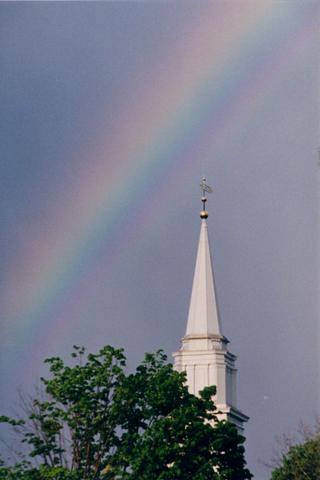When I studied theology in seminary I was impressed by the variety of “liberation theologies.” Liberation theology started as a movement in
Other groups followed this theological path, most prominently African-Americans and feminists. As I was ministering among impoverished Americans, this theology fit well. Granted, I was not a part of the group myself, but I could relate to the words of Isaiah, read by Jesus, that the Spirit of God was upon me to proclaim good news to the poor. I found other theological bolstering in a movement called the Social Gospel. This early 20th century movement was the work of influential “empowered” religious leaders on behalf of working class and poor people. So all of this influences my thinking, and as you all can attest by now, my preaching.
But I have long realized that I am preaching not to the underprivileged, but to the privileged (and that I am among them). What liberation do we need? It is one thing, albeit a critically important thing, to preach to the privileged that they/we have an obligation to the underprivileged, oppressed and poor people on our doorstep and around the world, but what liberation do we need? What oppresses White, middle and upper class Americans? Some churches on the right wing of American Christianity have argued that believers are an oppressed minority (or perhaps a majority oppressing itself by its silence) in the culture wars. I find this sort of “against-ness” a somewhat weak attempt to create an identity with the oppressed people of God found in the Bible. In other words, I think it is a way to preach the obvious message of liberation found in scripture to a people who don’t realize they need liberation, so the first job is create the need by pointing to the allegedly oppressive forces of secularism.
While I reject the basis of those claims, I do think that there is an oppression from which we privileged need liberation. That oppression is self-inflicted. Call it the rat race, or keeping up with the Joneses, but it is a pressure that few of us are free from. It takes a powerful act of will and a willingness to be a bit of a social pariah to be truly liberated from these social pressures. I have longed to find a way to frame this theology and think that I may have recently stumbled on a possibility. The school of theological thought that I am proposing is based on the message of the Dr. Seuss story, The Lorax. You may need to re-read it to see what I mean, but I’ll offer a brief summation of my point.
In the story, the Once-ler has obliterated the landscape and sits in his dwelling forlorn. At the end of telling his tale he offers to the listener one single seed, the last seed of the Truffula tree. The entire future hope, including the hoped-for return of the Lorax rests on the cultivation of this single seed. He also completes the thought the Lorax began at his departure. The Lorax was lifted through the smog of the industrial disaster the Once-ler had created. All that was left behind at this ascension was a rock that read “Unless…” The Once-ler says that he now realizes that the message is “Unless someone like you cares a whole awful lot nothing’s going to get better. It’s not.” This strikes me as the message of liberation that we need. We can be liberated from ourselves if we can start cultivating this seed of hope and decide to care a whole awful lot.
During Lent we will be focusing specifically on the personal impact each of us can have on tending to and saving this planet that has been entrusted to our stewardship. I think that the underlying theology is the message of the Lorax. I hope you will commit yourself to an active participation in our Lenten activities and in so doing help me explore the beginning of Loraxian Theology.


2 comments:
Your blog keeps getting better and better! Your older articles are not as good as newer ones you have a lot more creativity and originality now keep it up!
Good post and this enter helped me alot in my college assignement. Thank you as your information.
Post a Comment